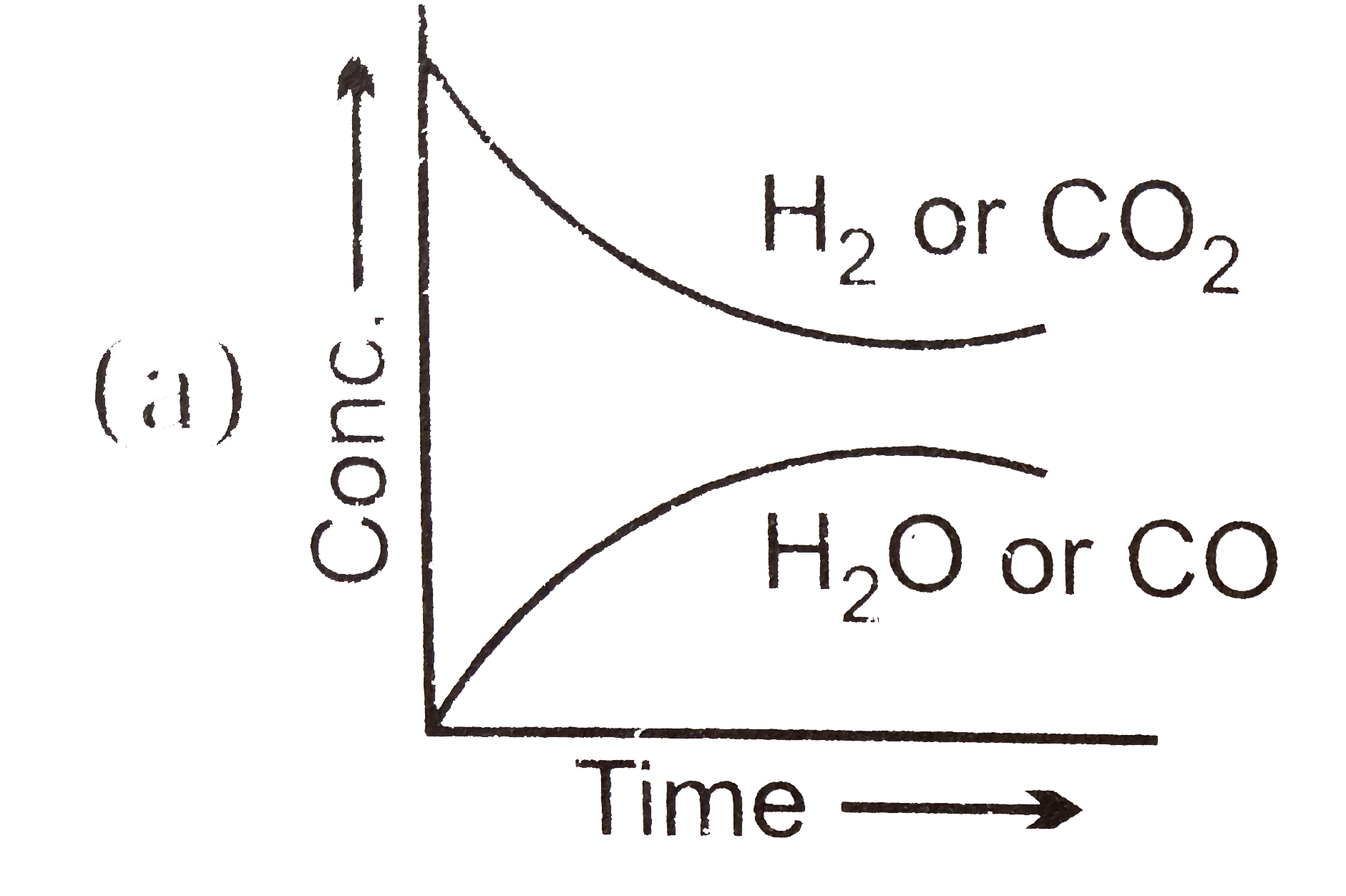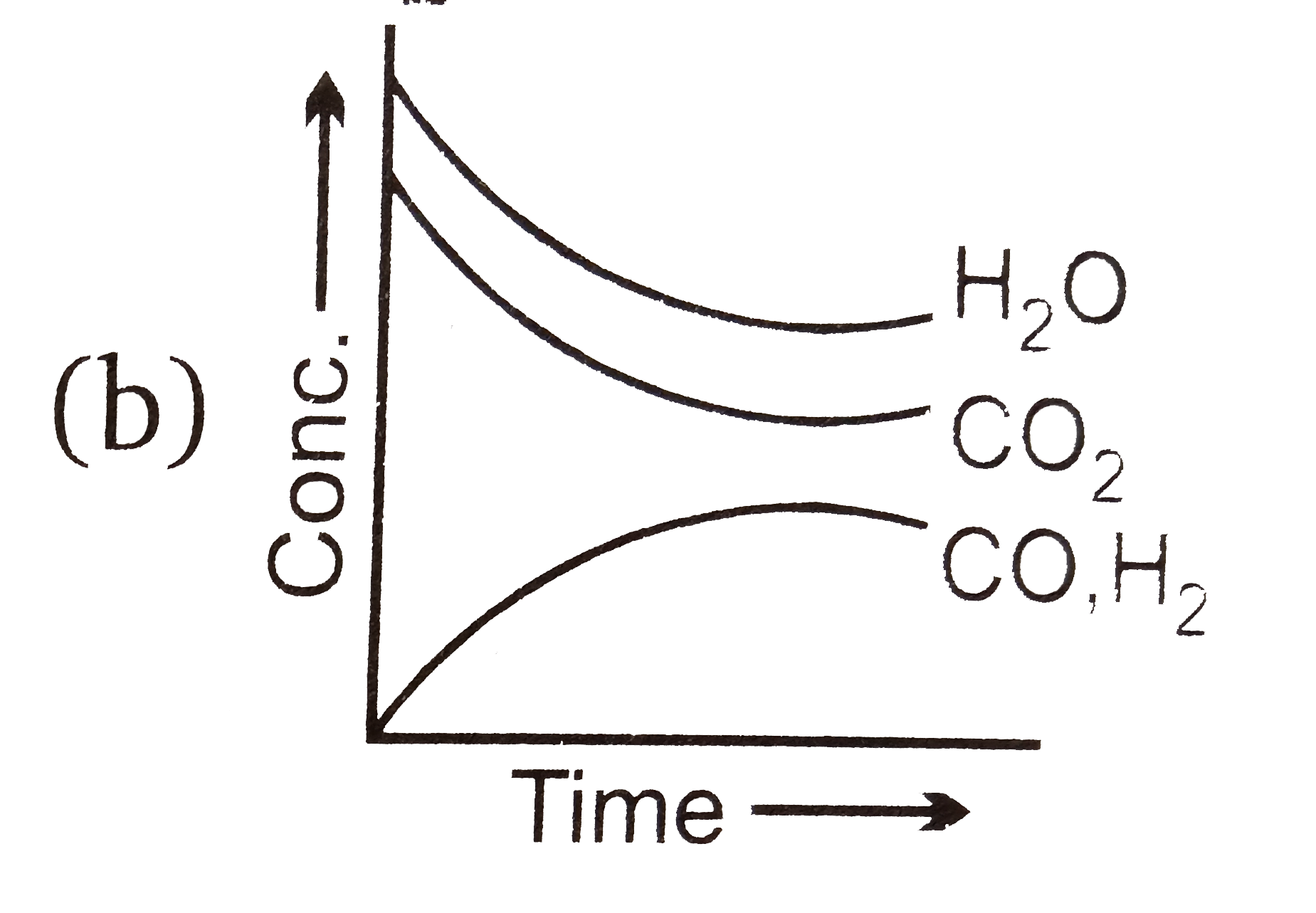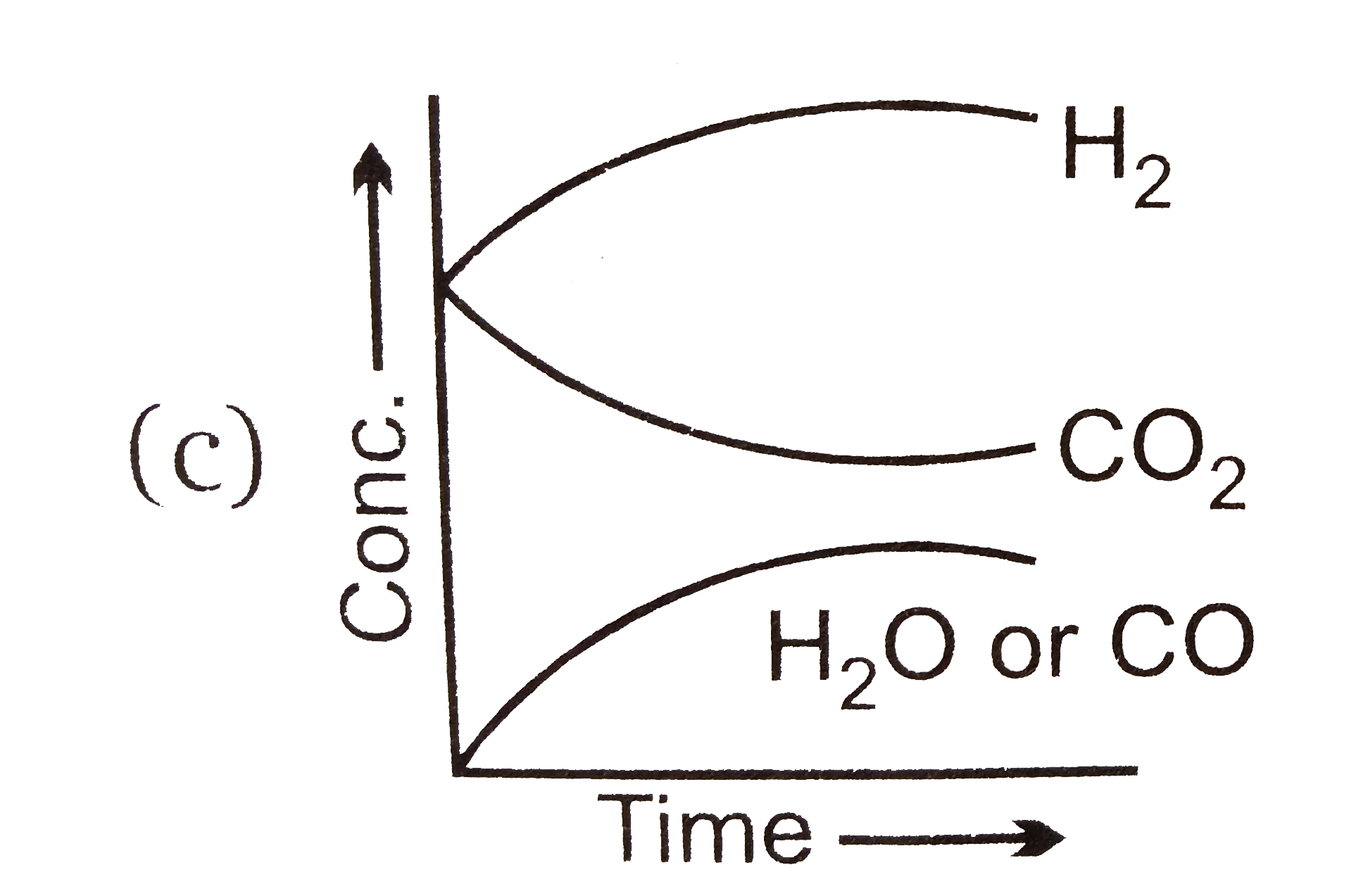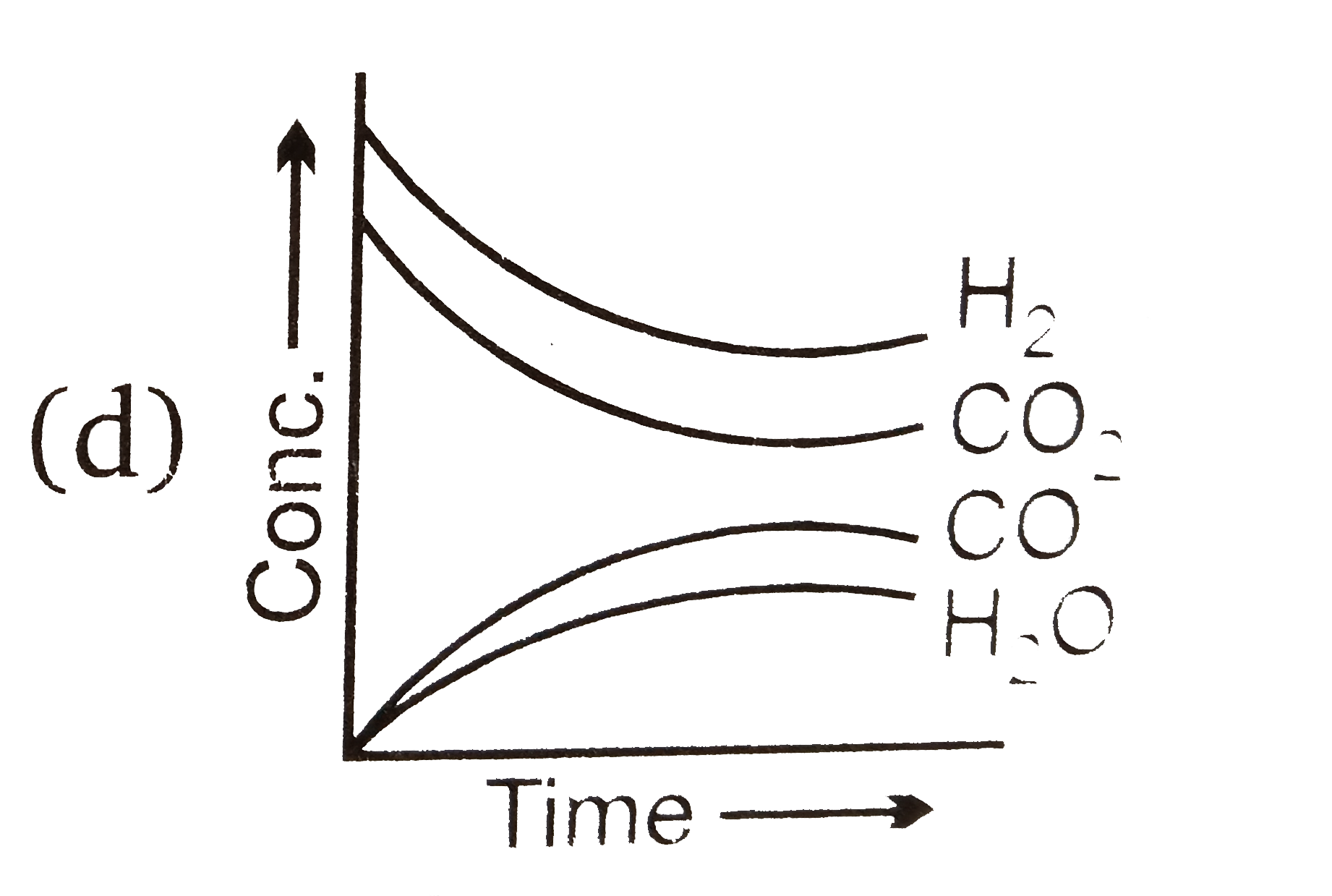Which statements in each of the following paris would you except to have the higher standard molar entropy?
(I) C2H2(g) or C2H6(g), (II) CO2(g) or CO(g), (III) I2(s) or I2 (g)
The correct choice is:
C2H2(g),CO2(g),I2(g)
C2H6(g),CO2(g),I2(g)
C2H2(g),CO2(g),I2(g)
C2H6(g),CO2(g),I2(g)
The correct Answer is:D
Large the molecule, more is entropy. Also, Entropy of a molecule is larger in gaseous state them in solid state.
⇒SC2H2<SC2H6,SCO2>SCO,SI2(s)<SI2(g)
Similar Questions
which of the following reactions will get affected by increase in pressure ? Also mention whether the change will cause the reaction to go the right or left direction.
(i) CH4(g)+2S)2(g)⇔CS2(g)+2H2S(g)
(ii) CO2(g)+C(s)⇔2CO(g)
(iii) 4NH3(g)+5O2(g)⇔4NO(g)+6H2O(g)
(iv) C2H4(g)+H2(g)⇔C2H6(g)
(v) COCI2(g)⇔CO(g)+CI2(g)
(vi) CaCO3(g)⇔CaO(s)+CO2(g)View SolutionComplete the following reactions :
(i) CuO(s)+H2(g)→
(ii) CO(g)+H2(g)→View Solution
Knowledge Check
- Question 1 - Select One
Which of the following is correct for the equilibrium of the reaction ?
C(s)+H2O(g)⇔CO(g)+H2(g)ApH2∝pH2OBpH2∝√pH2OCpH2∝p2H2ODpH2∝p2H2OpCO - Question 2 - Select One
Which of the following graphs are correct for the given reaction?
H2(g)+CO2(g)⇔H2O(g)+CO(g)
Assume initially only H2 and CO2 are present:A B
B C
C D
D
- Question 3 - Select One
Which of the following equilibrium will shift left on increasing pressure ?
(i) CO(g)+H2(g)⇔CO2(g)+H2(g)
(ii) C(s,diamond)⇔C(s,graphite)
(iii) CaCO3(s)⇔CaO(s)+CO2(g)AOnly (i)BOnly (iii)CBoth (ii) and (iii)DNone
Write the expressioin for the equilibrium constant for each of the following reactions?
(i) 2NOCl(g)<⇒2NO(g)+Cl2(g)
(ii) C(s)+CO2(g)⇔2CO(g)
(iii) I2(s)+5F2(g)⇔2IF5(g)
(iv) FeO(s)+CO(g)⇔Fe(s)+CO2(g)
(v) Na2CO3(s)+SO2(g)+1/2O2(g)⇔Na2SO4(s)+CO2(g).View SolutionWhich of the following reactions will get affected by increasing the pressure? Also, mention whether change will cause the reaction the reaction to go into forward of backward direction.
a. COCl2(g)⇔CO(g)+Cl2(g)
b. CH4(g)+2S2(g)⇔CS2(g)+2H2S(g)
c. CO2(g)+C(s)⇔2CO(g)
d. 2H2(g)+CO(g)⇔CH3OH(g)
e. CaCO3(s)⇔CaO(s)+CO2(g)
f. 4NH3(g)+5O2(g)⇔4NO(g)+6H2O(g)View SolutionWhich of the following equilibrium will shift left on increasing temperature.
(i) H2O(g)⇔+1/2O2(g)
(ii) CO2(g)+C(s)⇔CO(g)
(iii) C(s,diamond)⇔C(s,graphite)View SolutionThe free energy change for the following reactions are given below:
C2H2(g)+52O2(g)→2CO2(g)+H2O(l),
ΔG∘=−1234 kJ
C(s)+O2(g)→CO2(g),
ΔG∘=−394 kJ
H2(g)+12O2(g)→H2O(l),
ΔG∘=−237 kJ
What is the standard free energy change for the following reaction?
H2(g)+2C(s)→C2H2(g) ?View SolutionWhich of the following feature of catalysts is described in reactions given below?
(i) CO(g)+2H2(g)Cu/ZnO−Cr2O3−−−−−−−−−−→CH3OH(g)
(ii) CO(g)+H2(g)Cu−−→HCHO(g)
(iii) CO(g)+3H2(g)Ni−−→CH4(g)+H2O(g)View Solution

